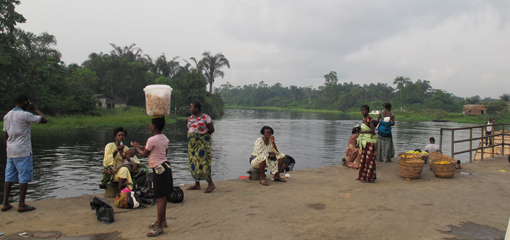The project

Since the end of the Cold War, and especially since September 2001, most research exploring religious difference, and especially Muslim-Christian relations, has focused on politics and the public sphere. At the same time, the majority of detailed work on the role of religion for everyday life focuses on the practices and transformations within Muslim or Christian societies. As a result, we know very little about the practices that structure the fine grain of everyday life in religiously mixed societies.
In order to understand how people relate to those of other religions in everyday life, we need to study the way in which everyday encounters with religious difference contribute to the constitution of important social identities associated with locality, class, gender and generation. Because such identities serve as an anchor for wider social and political dispositions, they play a significant role in determining the nature of social relations – including the degree of religious tolerance – within a society.
Unlike many parts of the world, the over 30 million Yoruba speakers of south-west Nigeria have experienced a historically low degree of religious conflict although they are both Muslims and Christians, with smaller numbers of traditionalists. Interpersonal relationships between Yoruba Muslims, Christians and traditionalists are also different from those in many other societies, which tend to characterised by mutual suspicion and social distance. In contrast, members of different religions among the Yoruba interact with each other frequently and on an everyday basis, and the ability to engage responsibly with members of different religious is an important part of most peoples’ lives.

Funded by the European Research Council (ERC), our research project maps out possibilities for the study of everyday religious encounter among the multi-religious Yoruba people of southwest Nigeria. In addition to more traditional historical and anthropological methods, it draws on an ethnographic door-to-door survey of over 2,500 respondents from different Nigerian states and from rural as well as urban communities which offers information on a wide range of topics. The project will focus especially on the topics of gender and marriage, youth and education, life and family histories, death and funerals as well as moral frameworks and meaning.
By exploring the ways in which different social identities are linked to dispositions and sensibilities that enable the avoidance or resolution of inter-religious conflicts, our research will develop comparative insights into different forms of tolerance in Yoruba society. We hope to explore whether there are tolerant dispositions or forms of habitus that will enable us to develop a comparative framework that can include forms of tolerance in other societies.
Also, while Yoruba religious debates are not free from relations of power, they are also earnestly engaged in the construction of meaning. The proposed research will explore religious discourse as a locus of lived engagement with moral frameworks, and of individual struggles for the creation and contestation of meaning, and it will seek to understand the specific as well as the general conditions under which meaningful discourse occurs.